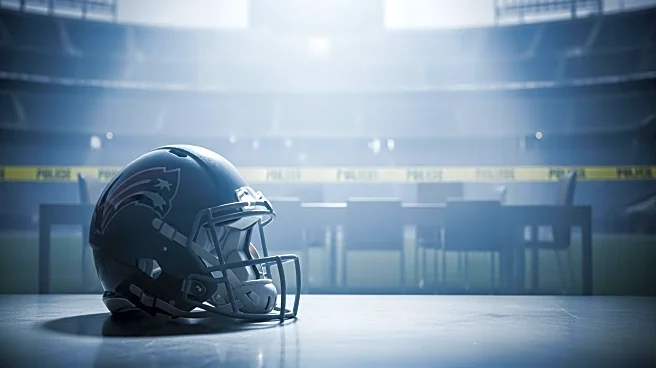What's Happening?
Greg Ellis, former Dallas Cowboys assistant coach, has spoken out about the mental health challenges faced by NFL players following the tragic death of Marshawn Kneeland, a player he coached. Kneeland died
of a self-inflicted gunshot wound, highlighting the pressures and mental health struggles athletes endure. Ellis, who has been an advocate for mental health awareness, expressed regret for not doing more to support Kneeland. The incident has sparked discussions about the need for mandatory mental health counseling for NFL players, as experts call for increased awareness and support systems within the league.
Why It's Important?
The mental health of professional athletes is a critical issue, as they face immense pressure both on and off the field. Kneeland's death underscores the need for comprehensive mental health support within the NFL. The league's current programs may not be sufficient, prompting calls for mandatory counseling sessions for players. This development could lead to policy changes that prioritize mental health, potentially reducing the stigma associated with seeking help. The conversation initiated by Ellis and other advocates could drive significant improvements in how mental health is addressed in professional sports.
What's Next?
The NFL may consider revising its mental health policies to include mandatory counseling for players. This could involve collaboration with mental health professionals to develop effective support systems. Teams might also implement more proactive measures to identify and address mental health issues early. The broader sports community is likely to engage in discussions about mental health, potentially influencing other leagues to adopt similar policies. Advocacy groups and mental health experts will continue to push for systemic changes to ensure athletes receive the necessary support.
Beyond the Headlines
The cultural shift towards recognizing mental health as a critical component of athlete well-being could lead to long-term changes in sports culture. As awareness grows, athletes may feel more empowered to speak openly about their struggles, reducing stigma and encouraging others to seek help. This could also influence youth sports programs to prioritize mental health education, fostering a healthier environment for future generations of athletes.










